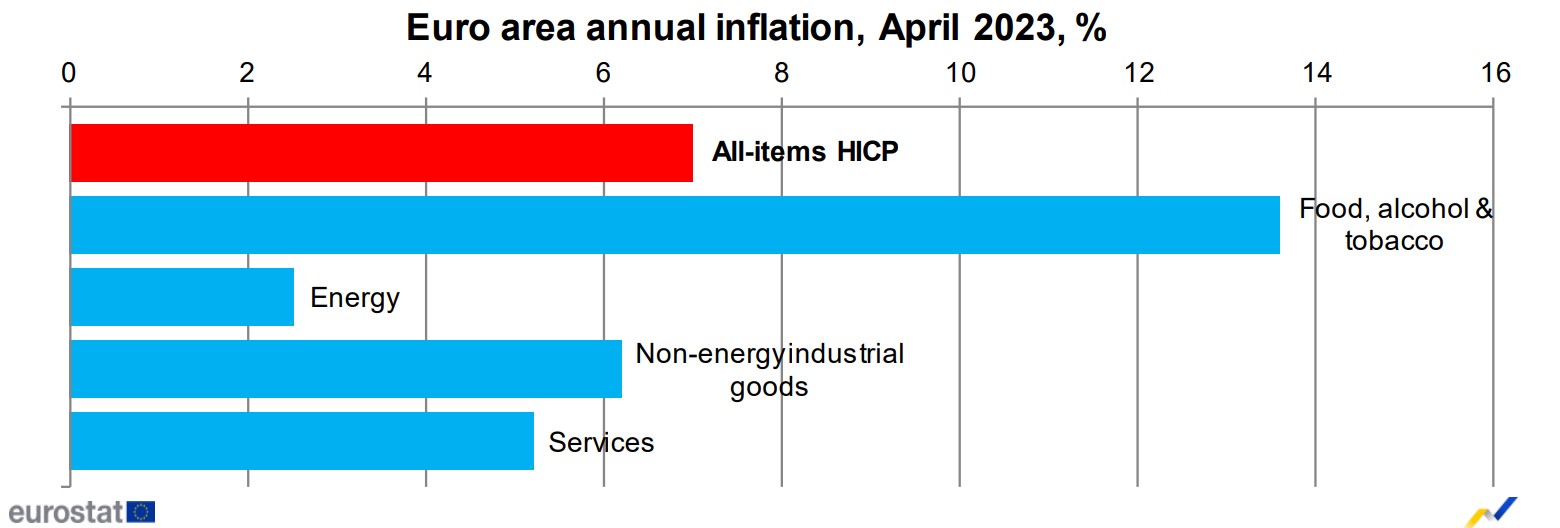Average inflation in the eurozone increased in April for the first time in six months as price pressures show no sign of subsiding across much of the currency union.
According to a flash estimate published on Tuesday by Eurostat, the EU's official statistics office, the eurozone's average inflation rate rose to 7% this month, up from 6.9% in March.
Latvia registered the highest inflation rate (15%), followed by Slovakia (14%) and Lithuania (13.3%). Conversely, Luxembourg (2.7%) recorded the lowest rate, followed by Belgium (3.3%) and Spain and Cyprus (both 3.8%).
Eurostat noted that the main drivers of inflation were steep increases in prices for food, alcohol and tobacco (13.6%). Meanwhile, inflation for non-energy industrial goods (6.2%), services (5.2%), and energy (2.5%) were registered as being below the headline rate.
The increase represents the first time that inflation in the eurozone has risen since October last year, when it peaked at 10.6%.
'Still a bit of a way to go'
Intriguingly, Eurostat's estimated inflation rate for Belgium was significantly lower than that recently reported by Statbel, Belgium's own statistics office, which announced last week that Belgium's current inflation rate is 5.60%, down from 6.67% in March.
Whatever Belgium's actual rate of inflation turns out to be, ongoing inflationary pressures throughout much of the rest of the eurozone area make it increasingly unlikely that the European Central Bank (ECB) will hold back from hiking interest rates at its next meeting on Thursday.
Related News
- Mixed messages: Belgian economy grows but industrial activity declines
- A welcome decline: Inflation falls in Belgium
Last month, ECB President Christine Lagarde said that the Bank "still has a bit of way to go" to bring inflation down to 2%.
"Our monetary policy must obviously deploy all its tools to bring inflation to the 2% target in the medium-term," Lagarde said. "This exercise is underway. We already used most of our tools, there is still a bit of a way to go."
The ECB has already raised interest rates six times over the past nine months as it attempts to curb Europe's soaring inflation rate, which was precipitated – or, at the very least, exacerbated – by Russia's full-scale invasion of Ukraine in February last year.


